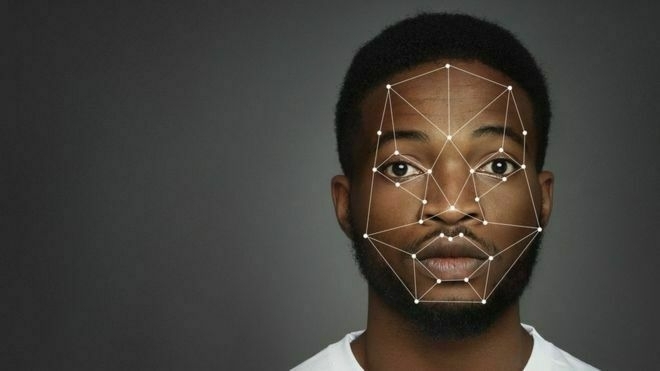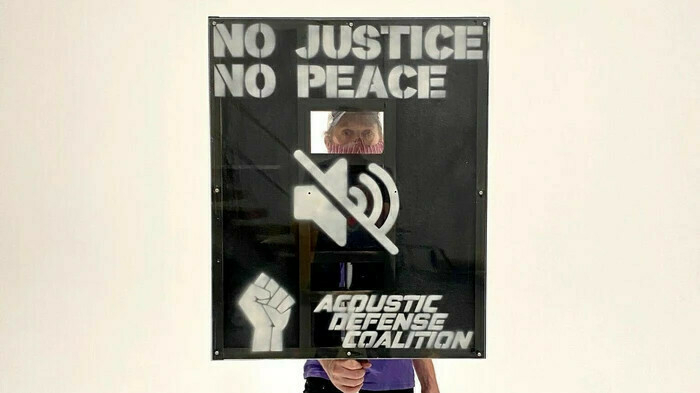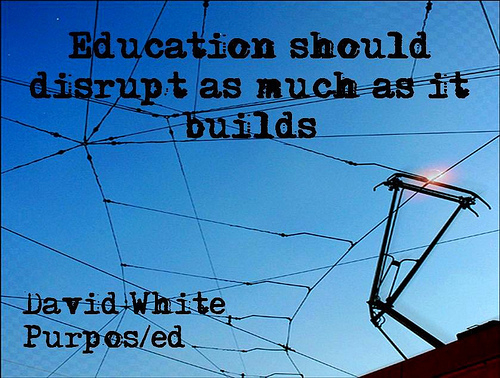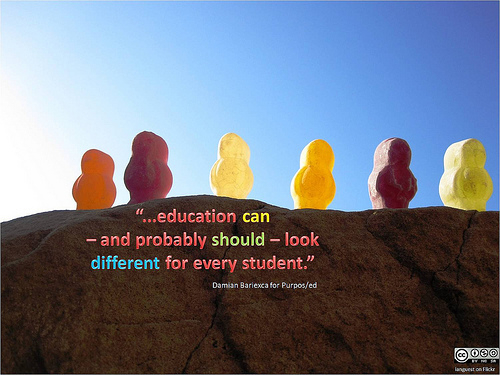- People seem not to see that their opinion of the world is also a confession of character
- We have it in our power to begin the world over again
- There is no creature whose inward being is so strong that it is not greatly determined by what lies outside it
Saturday soundings
Black Lives Matter. The money from this month's kind supporters of Thought Shrapnel has gone directly to the 70+ community bail funds, mutual aid funds, and racial justice organizers listed here.

IBM abandons 'biased' facial recognition tech
A 2019 study conducted by the Massachusetts Institute of Technology found that none of the facial recognition tools from Microsoft, Amazon and IBM were 100% accurate when it came to recognising men and women with dark skin.
And a study from the US National Institute of Standards and Technology suggested facial recognition algorithms were far less accurate at identifying African-American and Asian faces compared with Caucasian ones.
Amazon, whose Rekognition software is used by police departments in the US, is one of the biggest players in the field, but there are also a host of smaller players such as Facewatch, which operates in the UK. Clearview AI, which has been told to stop using images from Facebook, Twitter and YouTube, also sells its software to US police forces.
Maria Axente, AI ethics expert at consultancy firm PwC, said facial recognition had demonstrated "significant ethical risks, mainly in enhancing existing bias and discrimination".
BBC News
Like many newer technologies, facial recognition is already a battleground for people of colour. This is a welcome, if potential cynical move, by IBM who let's not forget literally provided technology to the Nazis.
How Wikipedia Became a Battleground for Racial Justice
If there is one reason to be optimistic about Wikipedia’s coverage of racial justice, it’s this: The project is by nature open-ended and, well, editable. The spike in volunteer Wikipedia contributions stemming from the George Floyd protests is certainly not neutral, at least to the extent that word means being passive in this moment. Still, Koerner cautioned that any long-term change of focus to knowledge equity was unlikely to be easy for the Wikipedia editing community. “I hope that instead of struggling against it they instead lean into their discomfort,” she said. “When we’re uncomfortable, change happens.”
Stephen Harrison (Slate)
This is a fascinating glimpse into Wikipedia and how the commitment to 'neutrality' affects coverage of different types of people and event feeds.
Deeds, not words
Recent events have revealed, again, that the systems we inhabit and use as educators are perfectly designed to get the results they get. The stated desire is there to change the systems we use. Let’s be able to look back to this point in two years and say that we have made a genuine difference.
Nick Dennis
Some great questions here from Nick, some of which are specific to education, whereas others are applicable everywhere.

Audio Engineers Built a Shield to Deflect Police Sound Cannons
Since the protests began, demonstrators in multiple cities have reported spotting LRADs, or Long-Range Acoustic Devices, sonic weapons that blast sound waves at crowds over large distances and can cause permanent hearing loss. In response, two audio engineers from New York City have designed and built a shield which they say can block and even partially reflect these harmful sonic blasts back at the police.
Janus Rose (Vice)
For those not familiar with the increasing militarisation of police in the US, this is an interesting read.
CMA to look into Facebook's purchase of gif search engine
The Competition and Markets Authority (CMA) is inviting comments about Facebook’s purchase of a company that currently provides gif search across many of the social network’s competitors, including Twitter and the messaging service Signal.
[...]
[F]or Facebook, the more compelling reason for the purchase may be the data that Giphy has about communication across the web. Since many services that integrate with the platform not only use it to find gifs, but also leave the original clip hosted on Giphy’s servers, the company receives information such as when a message is sent and received, the IP address of both parties, and details about the platforms they are using.
Alex Hern (The Guardian)
In my 2012 TEDx Talk I discussed the memetic power of gifs. Others might find this news surprising, but I don't think I would have been surprised even back then that it would be such a hot topic in 2020.
Also by the Hern this week is an article on Twitter's experiments around getting people to actually read things before they tweet/retweet them. What times we live in.
Human cycles: History as science
To Peter Turchin, who studies population dynamics at the University of Connecticut in Storrs, the appearance of three peaks of political instability at roughly 50-year intervals is not a coincidence. For the past 15 years, Turchin has been taking the mathematical techniques that once allowed him to track predator–prey cycles in forest ecosystems, and applying them to human history. He has analysed historical records on economic activity, demographic trends and outbursts of violence in the United States, and has come to the conclusion that a new wave of internal strife is already on its way1. The peak should occur in about 2020, he says, and will probably be at least as high as the one in around 1970. “I hope it won't be as bad as 1870,” he adds.
Laura Spinney (Nature)
I'm not sure about this at all, because if you go looking for examples of something to fit your theory, you'll find it. Especially when your theory is as generic as this one. It seems like a kind of reverse fortune-telling?

Universal Basic Everything
Much of our economies in the west have been built on the idea of unique ideas, or inventions, which are then protected and monetised. It’s a centuries old way of looking at ideas, but today we also recognise that this method of creating and growing markets around IP protected products has created an unsustainable use of the world’s natural resources and generated too much carbon emission and waste.
Open source and creative commons moves us significantly in the right direction. From open sharing of ideas we can start to think of ideas, services, systems, products and activities which might be essential or basic for sustaining life within the ecological ceiling, whilst also re-inforcing social foundations.
TessyBritton
I'm proud to be part of a co-op that focuses on openness of all forms. This article is a great introduction to anyone who wants a new way of looking at our post-COVID future.
World faces worst food crisis for at least 50 years, UN warns
Lockdowns are slowing harvests, while millions of seasonal labourers are unable to work. Food waste has reached damaging levels, with farmers forced to dump perishable produce as the result of supply chain problems, and in the meat industry plants have been forced to close in some countries.
Even before the lockdowns, the global food system was failing in many areas, according to the UN. The report pointed to conflict, natural disasters, the climate crisis, and the arrival of pests and plant and animal plagues as existing problems. East Africa, for instance, is facing the worst swarms of locusts for decades, while heavy rain is hampering relief efforts.
The additional impact of the coronavirus crisis and lockdowns, and the resulting recession, would compound the damage and tip millions into dire hunger, experts warned.
Fiona Harvey (The Guardian)
The knock-on effects of COVID-19 are going to be with us for a long time yet. And these second-order effects will themselves have effects which, with climate change also being in the mix, could lead to mass migrations and conflict by 2025.
Mice on Acid
What exactly a mouse sees when she’s tripping on DOI—whether the plexiglass walls of her cage begin to melt, or whether the wood chips begin to crawl around like caterpillars—is tied up in the private mysteries of what it’s like to be a mouse. We can’t ask her directly, and, even if we did, her answer probably wouldn’t be of much help.
Cody Kommers (Nautilus)
The bit about 'ego disillusion' in this article, which is ostensibly about how to get legal hallucinogens to market, is really interesting.
Header image by Dmitry Demidov
The old is dying and the new cannot be born
Education for a post-pandemic future
Welcome to the fourth instalment in this blog chain about post-pandemic society:
This time, I want to talk about education. It's been a decade since I left the classroom as a school teacher and senior leader but, just after doing so, I co-kickstarted a project called Purpos/ed: what's the purpose of education? While the original website has long since gone the way of all digital bits and bytes, it can still be accessed via the Internet Archive's Wayback Machine (which may take significantly longer to load than most websites, so be patient!)
There were some fantastic contributions to that project, each of which were 500 words long. We followed that up with image remixes, audio contributions, and even a one-day unconference at Sheffield Hallam university! All of the written contributions were compiled into a book that was published by Scholastic (I've still got a few copies if anyone wants one) and the campaign ended up being featured on the front page of the TES.
My reason for returning to this project is that it seems that many people, especially parents and educators, are once again thinking about the purpose of education. There is even a UNESCO Commission on the Futures of Education to which you can add your voice.
Below are some of my favourite responses to the Purpos/ed campaign, right after a video clip from Prof. Keri Facer, whose work (especially Learning Futures) served as our inspiration.
Before the first Purpos/ed post was written, I jotted down my own off-the-cuff answer: "the purpose of education is to aid our meditation on purposes — what should we do, why and how?". I know that's a bit glib, but it adds a reflexive twist to this debate: how sophisticated and sensitive to changing context are our education systems and discourse? I worry we may be in for a rude awakening when the education squabbles of the Easy Times are shown up as an irrelevant sideshow when the Hard Times bite.
David Jennings
Education should not be just be about the ‘system’ or the schools, it should be about the community and drawing on the skills and knowledge that is within our local communities. Enabling our children to learn from what has gone before to ensure that they enhance their own future. For many education provides an escape, a way out that broadens their horizons and provides them with opportunities that they did not realize existed, that can ultimately provide them with richness and most importantly happiness.
Dawn Hallybone
The internet provides us with rich and free spaces for expansive learning. The institutions only have left their monopoly on funding and on certification. And so capitalism has begun a new project. The first aim is to strike out at democratization of learning by privatizing education, by deepening barriers to equality and access. And the second more audacious aim is to privatize knowledge itself, to turn knowledge and learning into a commodity to be bought and sold like any other consumer good.
Thus we find ourselves at a turning point for the future of education. The contradictions inherent in the different views of the purpose of education do not allow any simple compromise or reform minded tinkering with the system. For those that believe in education as the practice of freedom there are two challenges: to develop a societal discourse around the purpose of education and secondly to develop transformative practice, as teacher students and student teachers.
Graham Attwell

Education should critically ensure children, young people and adults are equipped to be unsettled, to be confronted by difference, to be changed, and to effect change. Education is a conduit to different cultures, different places, different times - to different ways of thinking about things and doing things. Education provides us with an introduction to things unimagined and unencountered. It should provide the critical challenge to examine our beliefs, interpretations and horizons, the ability to reexamining ourselves in new contexts, to develop new interests, to review the ways in which we understand ourselves and our place in the world. The purpose of education should be to expand expectations, not to confine them - to support our learners in understanding the impact they can and do have on their world. We cannot expect education built upon, and educators who model, a fixation with certainty and inflexibility to meet the urgent and ongoing needs of pressing social, economic and political change.
Josie Fraser
For me, the purpose of education is to become a better human being; recognising that we share a commonality with others around us and that we are bound to the ones who walked before and the ones to come. It allows us to draw on the experiences of the past and help prepare us to face the future (with all its attendant opportunities and issues). Conceived in this sense, it allows us to remove the primacy of the veneer (worker, teacher, student, friend) and reinstates these (important) roles within the context that they form part of a larger whole. Doing so would also allow us to rethink the relationship of means and ends and unlock the powerful impact this reconfiguration can have for the lives of people around us when we do treat them as they should be.
Nick Dennis
The desire to learn is woven into the concept of contentment and that, for me at least, is the basic purpose of any education system. Contentment can flourish into happiness, riches, recognition or any other myriad of emotional and material gain. But without a content society, with an ambition to continually discover and question the world around them throughout life, we end up with society's biggest enemies: complacency, stagnancy, apathy and ambivalence.
Ewan mcintosh

An educated population is probably the least governable, the most likely to rebel, the most stubborn and the most critical. But it is a population capable of the most extraordinary things, because each person strides purposefully forward, and of their own volition, together, they seek a common destiny.
Stephen Downes
Education, it seems, is the method by which we attempt to make the world come out the way we want it to. It is about using our power to shape and control the world to come so that it comes into line with our own hopes and dreams. In any way we move it, even towards chaos and anarchy, we are still using our power to shape and control the future.
Dave Cormier
It is make or break time for humanity and we have a responsibility to draw a line in the sand, admit our mistakes and create a system of education that can begin to undo the harm that we have done to the world. For all the talk over the last twenty years of the ‘global village’, it has not stopped us continuing to destroy our planet, to wage wars and to continue to ignore the inequalities in society. What is the purpose of education? Surely, it is to create unity by helping future generation to recognise the values that humanity share.
James mIchie
As Purpos/ed was a non-partisan campaign, Andy Stewart and I didn't give our views on the purpose of education. But perhaps, in a follow-up post, it's time to explicitly state what, for me, it's all about? I'd certainly like to read what others are thinking...
Quotation-as-title from Antonio Gramsci. Header image via Pixabay.